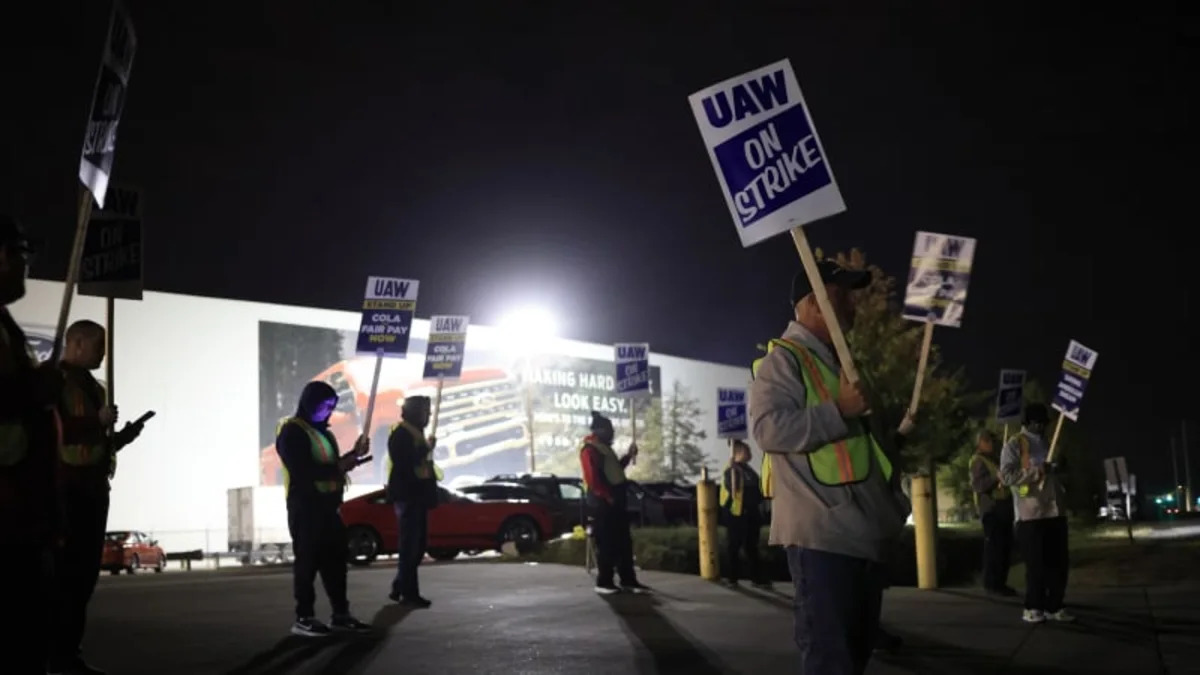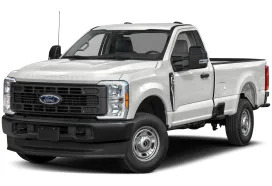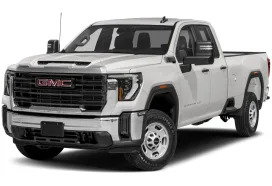A major surprise came for Ford on Wednesday night, the 27th day of the United Auto Workers (UAW) stand-up strikes.
The UAW called an unplanned walkout at Ford’s sprawling Kentucky Truck Plant, a massive escalation because this plant builds Ford’s F-250 through F-550 Super Duty trucks, Expedition SUV, and Lincoln Navigator SUV. While the top selling F-150 was spared, Ford says Kentucky Truck plant is responsible for $25 billion in revenue annually.
The UAW said in a statement the strike at Kentucky Truck was called after Ford “refused to make further movement in bargaining,” marking a new phase for the stand up strikes. “If they can’t understand that after four weeks, the 8,700 workers shutting down this extremely profitable plant will help them understand it,” Fain said.
Ford’s response came quickly on Wednesday night: The automaker called the UAW’s latest move “grossly irresponsible” but not surprising. The strike at Kentucky Truck “carries serious consequences for our workforce, suppliers, dealers and commercial customers,” the company added.
The UAW has 8,700 workers at Kentucky Truck. But Ford officials said the ripple effect from Kentucky Truck will impact dozens of other Ford operations and suppliers, which employ around 100,000 workers.
The financial impact, and pain point created by this move, is a big one.
“Targeting Ford's Kentucky Truck Plant hits some of the most expensive products they make, including the SuperDuty, which sells for as much as $100,000,” Sam Fiorani, auto industry expert at AutoForecast Solutions (AFS), told Yahoo Finance. “Expanding the strike to include this facility is meant to force Ford's hand and bring them to the table quicker.”
Fiorani, whose firm tracks auto production and plant productivity across the globe, says profits on vehicles at Kentucky Truck can easily top $10,000 per unit, making them among the most important in Ford's product portfolio.
“It is also a shot across the industry to tell GM and Stellantis to step up their game or else their big and profitable models would be targeted next,” Fiorani said.
Case in point: Last week the UAW did not expand strikes against the Big Three, as Fain said a major concession was made by GM (GM) — the automaker supposedly said it would allow workers at joint-venture battery plants to unionize. This was a major move as it would likely mean Ford and Stellantis (STLA) would have to agree to similar terms in the collective bargaining process as the entire industry transforms itself from gas-powered cars to electrified vehicles.
It’s possible Ford was not budging on its stance of not allowing unionization at its upcoming battery plants in Tennessee, and other locations. Whether this changes Ford’s calculus on its battery plants remains to be seen.
Stay tuned. Friday, the UAW is expected to announce its next steps.
Pras Subramanian is a reporter for Yahoo Finance. You can follow him on Twitter and on Instagram.
Click here for the latest stock market news and in-depth analysis, including events that move stocks
Read the latest financial and business news from Yahoo Finance





Sign in to post
Please sign in to leave a comment.
Continue